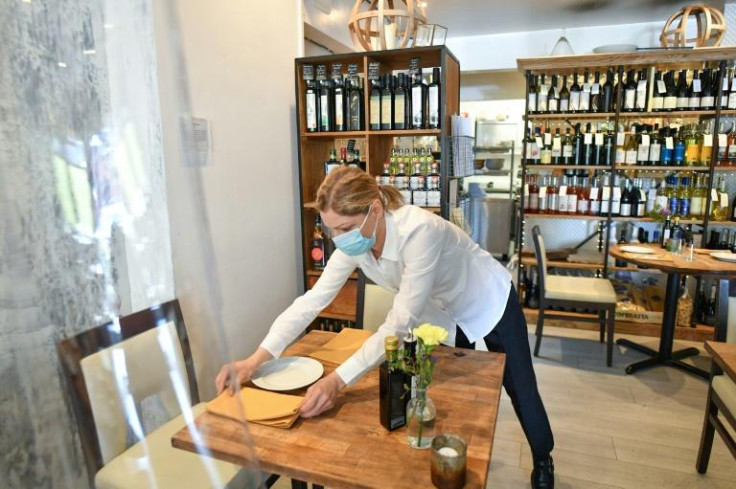Record high of nearly 6,000 hospitality industry closures in the last 12 Months
There have been approximately one in 18 hospitality industry closures all over Britain in the past year, as the record-breaking number sends shock waves through the sector and raises concerns about the long-term viability of businesses.

The latest Hospitality Market Monitor from CGA by NIQ and AlixPartners revealed 5,736 hospitality industry closures in the past 12 months with Britain losing approximately one in 18 of its licensed establishments over the past year.
This record-breaking number has sent shock waves through the sector and raised concerns about the long-term viability of businesses in the face of ongoing challenges.
The hospitality industry, encompassing restaurants, bars, hotels and entertainment venues, has always been sensitive to economic fluctuations and changing consumer preferences. However, the past year's events have brought unprecedented challenges, pushing many establishments to the brink of collapse.
Karl Chessell, the business unit director of leading consultancy CGA said it had been "another tough quarter for hospitality, with soaring energy, food and labour costs squeezing businesses' margins and inflation and interest rate rises sapping consumer confidence".
He added that the hospitality industry closures are "sadly inevitable while costs remain so high", Although CGA also said there is hope for the trajectory of the trend to change with the rate of closures slowing in recent months.
The lingering impact of the global pandemic is among the primary drivers of this crisis. Despite progress in vaccination efforts and the easing of restrictions in some regions, many businesses continue to grapple with reduced foot traffic, capacity limits and labour shortages.
The unpredictable nature of the pandemic has made it challenging for business owners to plan for the future with any certainty.
Additionally, the rising cost of supplies and ingredients has considerably strained profit margins for hospitality businesses.
The inflation surge affecting various sectors of the economy has hit the industry particularly hard, leading to higher operational costs and ultimately, widespread hospitality industry closures.
In response to these challenges, industry leaders and trade associations have been calling on governments and policymakers for support. Calls for targeted financial assistance, tax relief measures and flexible regulations to help alleviate the burden on businesses have been growing louder as closures continue to mount.
New research from Peckwater Brands revealed that over three-fifths or 62 per cent of UK hospitality industry businesses believe their sector gets less support and attention from the Government than other industries,
The delivery franchise also discovered that 36 per cent of its respondents want the "Eat Out to Help Out" scheme to return, while two in five or 40 per cent are looking forward to an extension of energy bill relief.
Furthermore, technology disruptions have also played a role in reshaping consumer behaviour. The rise of food delivery apps and online ordering systems has encouraged a shift away from traditional dine-in experiences, impacting restaurants and eateries that heavily relied on foot traffic.
Many smaller, independently-owned businesses have borne the brunt of the closures, facing a particularly challenging environment in which to operate. However, even larger chains and established brands have not been immune, with several well-known names announcing closures of multiple outlets across different locations.
While the road to recovery remains uncertain, some businesses have adapted and found creative solutions to stay afloat. Embracing new technologies, diversifying revenue streams and focusing on health and safety measures have been some of the strategies employed by the more resilient players in the industry.
As the world cautiously navigates the post-pandemic landscape, it remains to be seen how the hospitality industry will recover and rebuild. The long-term effects of the closures on employment, consumer behaviour and urban landscapes will undoubtedly have far-reaching implications.
The current situation serves as a stark reminder of the importance of supporting local businesses and industries during times of crisis. Government interventions, community support and consumer patronage will play a pivotal role in shaping the future of the hospitality sector and ensuring its revival in the months and years ahead.
© Copyright IBTimes 2025. All rights reserved.






















